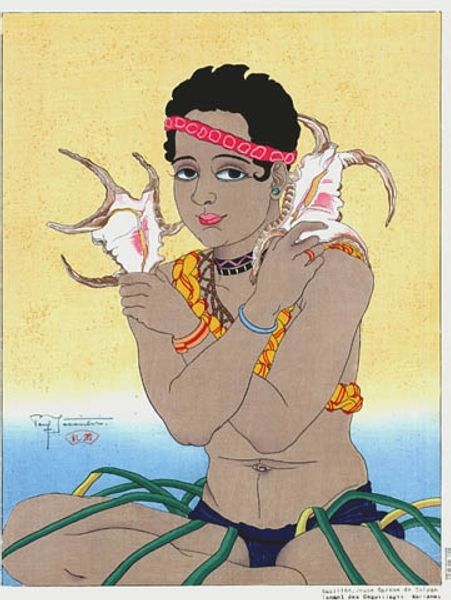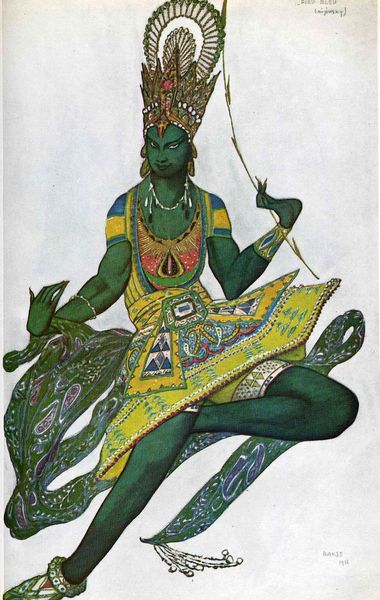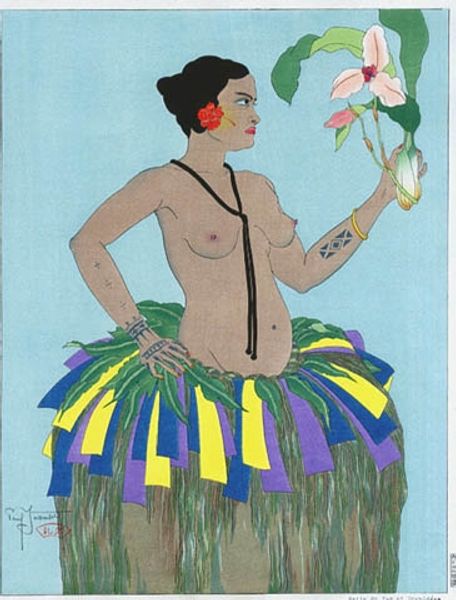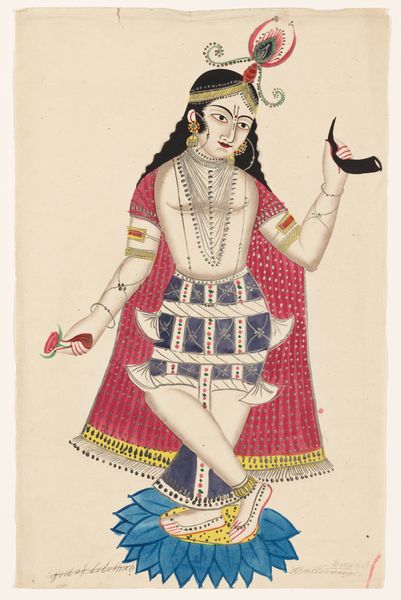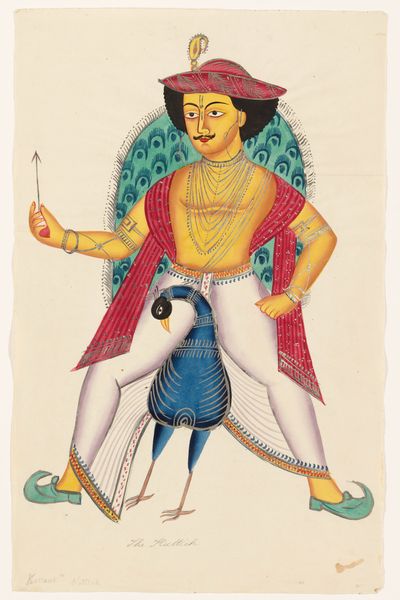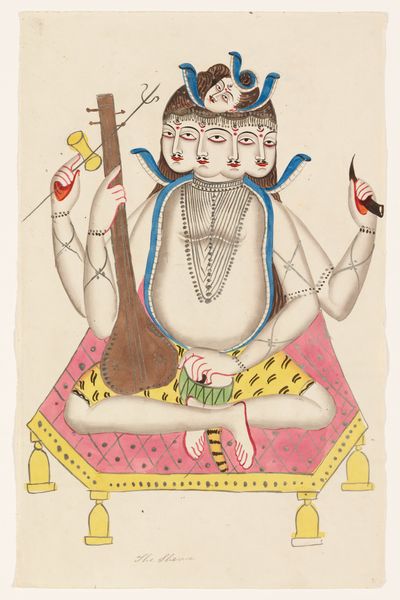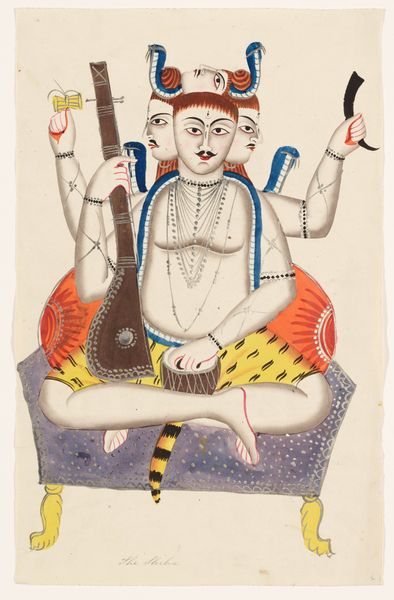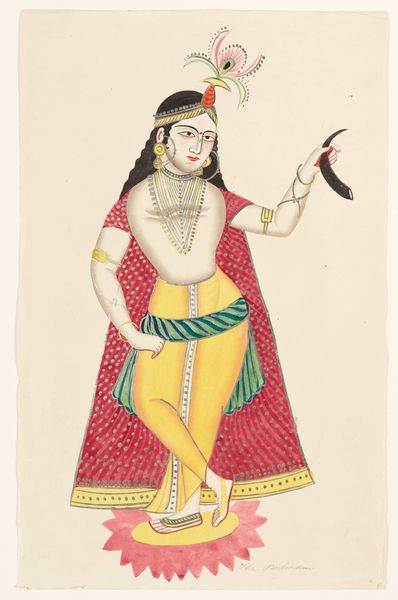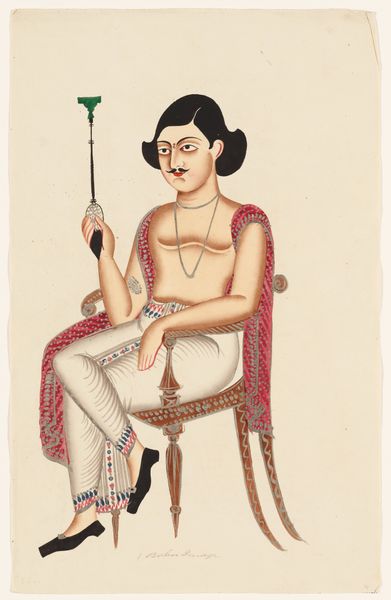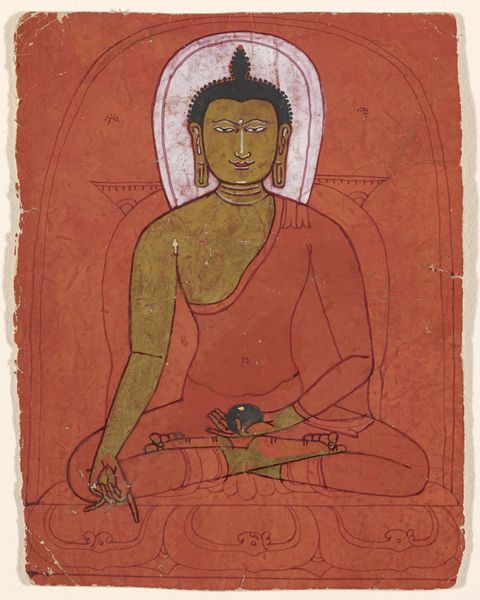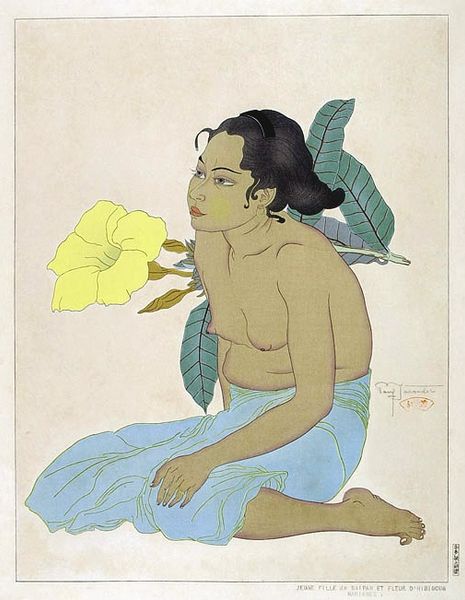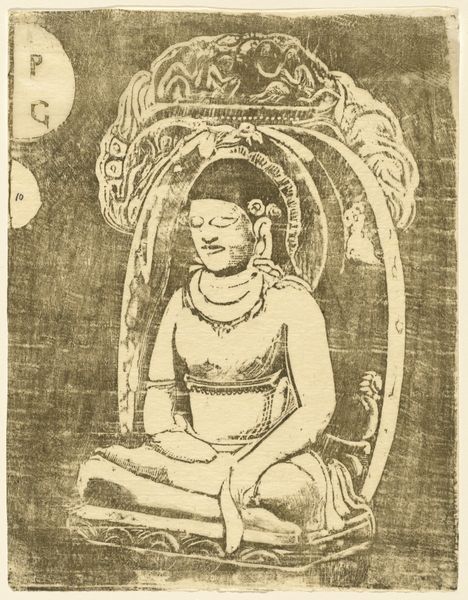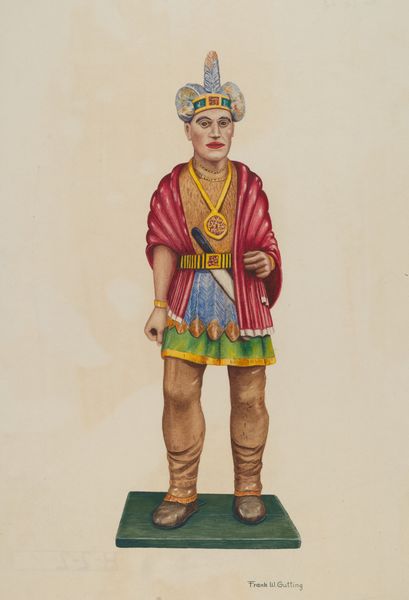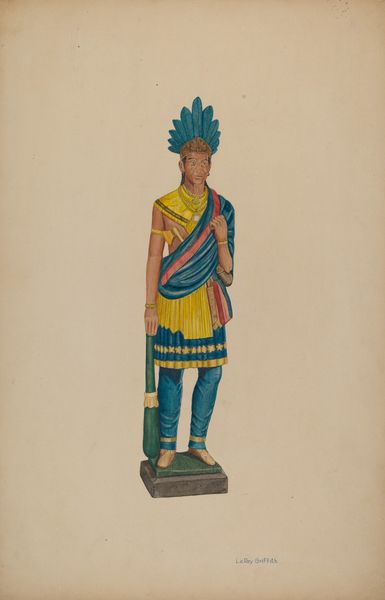
Copyright: Public domain Japan
Curator: Paul Jacoulet created this watercolor illustration titled “Mon Ami Francesco Ogarto. Marianes” in 1935. Editor: It feels staged, somehow. The vibrant clothing pops, especially against the pale backdrop. I feel like I'm peering into a constructed world, a fleeting moment frozen in time. Curator: Jacoulet was a master of ukiyo-e techniques, despite being French, and this work is representative of his blend of orientalism and portraiture. Consider the social context of its creation – the West's fascination with the East. Editor: "Mon Ami" - my friend, he titles it. I wonder about the actual friendship here. There's a caricature-like quality, an exoticising gaze perhaps? It's intriguing and unsettling. The garlands, that ornate headpiece... What story are those telling? Curator: Precisely! These elements can be seen through the historical lens of artistic exoticism and raises the issue of how Jacoulet presents his "friend," the sitter. How does Jacoulet’s biography as a French artist impact his interpretation of his subjects? Editor: You know, the sitter's eyes project this amazing world-weariness that contrasts so vividly with the festive attire he's forced to wear. I want to rewrite his story, imagine him unshackled. It is sad when looking at it from today's world. Curator: Art like this forces us to question our understanding of other cultures. Who holds the power to represent, and how does that representation affect reality? Editor: Well, art *should* disrupt our comfortable world views, shouldn't it? Even when, and maybe especially when, they are beautifully rendered watercolor illustrations of dubious origin. Curator: Agreed, it is that duality—beauty and its problematic contexts—that gives "Mon Ami Francesco Ogarto. Marianes" its lasting resonance. Editor: It is the unease it creates, the stories left untold. Yes, that is why it captures you.
Comments
No comments
Be the first to comment and join the conversation on the ultimate creative platform.
